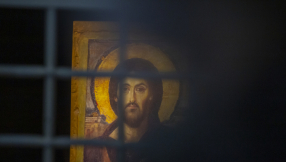Ecumenical Aids bodies want more 'HIV-competent' churches
The Ecumenical HIV and Aids Initiative in Africa (EHAIA), Churches United Against HIV and Aids in Southern and Eastern Africa (CUAHA) and the newly created International Network of Religious Leaders Living or Personally Affected by HIV and Aids (INERELA+) are just some of the major church bodies to sign up to the campaign.
Together, they will produce education and advocacy materials to be used around World Aids Day on 1 December, as well as a "tool-kit" to help churches assess the quality and scale of their response to HIV and Aids.
Plans for the campaign were set into motion at the "Faith in Action Now!" ecumenical conference held in the days immediately prior to the International Aids Conference currently taking place in Mexico City.
"HIV-competent churches" will be those helping to halt the spread of HIV, working to improve the quality of life of sufferers and the HIV-affected, tackling the impact of HIV, and restoring hope and dignity.
"An HIV-competent church is able to build up a new community of God. A community that recognises and responds to the social challenges that contribute to HIV and has leaders who can break free from unhelpful traditions and cultures to overcome HIV," said Bishop Dr Johannes Ramashapa, Presiding Bishop of the Evangelical Lutheran Church in Southern Africa.
The Faith in Action Now! Conference, hosted by the Ecumenical Advocacy Alliance, brought together more than 500 representatives of churches and church-related organisations.
At a session on Sunday, conference delegates discussed the role of the church in breaking down the stigma and discrimination associated with HIV and Aids.
The acting executive director of INERELA+, the Rev JP Heath, told the conference, "I believe that God can use HIV to heal the church. I also believe that we are the church, the body of the Christ, and together, stigma and discrimination can be something of the past."
Heath, who is HIV-positive, urged churches to help overcome stigma by sending out the message that HIV is preventable and manageable. Prevention measures include the promotion of abstinence, safer sexual practices, voluntary testing and empowerment, he added.
The presiding bishop of the Evangelical Lutheran Church in America, the Rev Mark S Hanson, washed the feet of two HIV-positive women during the conference to demonstrate the "humility and repentance" that church leaders should show towards HIV sufferers.
One of the women, Dilmitis, said her church in Norway offers spiritual and emotional support to people with HIV and drug users.
"The energy of acceptance and love I felt there was godly and this is how relationships should be between people living with HIV and religious leaders," she said.
She suggested four strategies for building relationships between religious leaders and people living with HIV: speak openly about HIV; accept, understand and empathise with people living with HIV; acknowledging that people of faith are sometimes stigmatised; and learn more about HIV.
Kay Warren, international Aids advocate and co-founder of Saddleback Church in Lake Forest, California, said that churches had to be at the forefront of addressing challenges in today's world.
"The church is the hope of the world, and God's plan for dealing with the problems of the world," Warren said. "Whether dealing with violence, poverty, orphans or Aids - if we don't start with the church, we are starting at the wrong end of the equation."
Karuna Roy, coordinator of the Synodical Board of Health Services in the Church of North India, urged churches to welcome HIV sufferers into their midst.
"We all strive to develop a church fully informed on what HIV and Aids is; which acknowledges people living with HIV as an integral and precious part of the congregation," she said.













